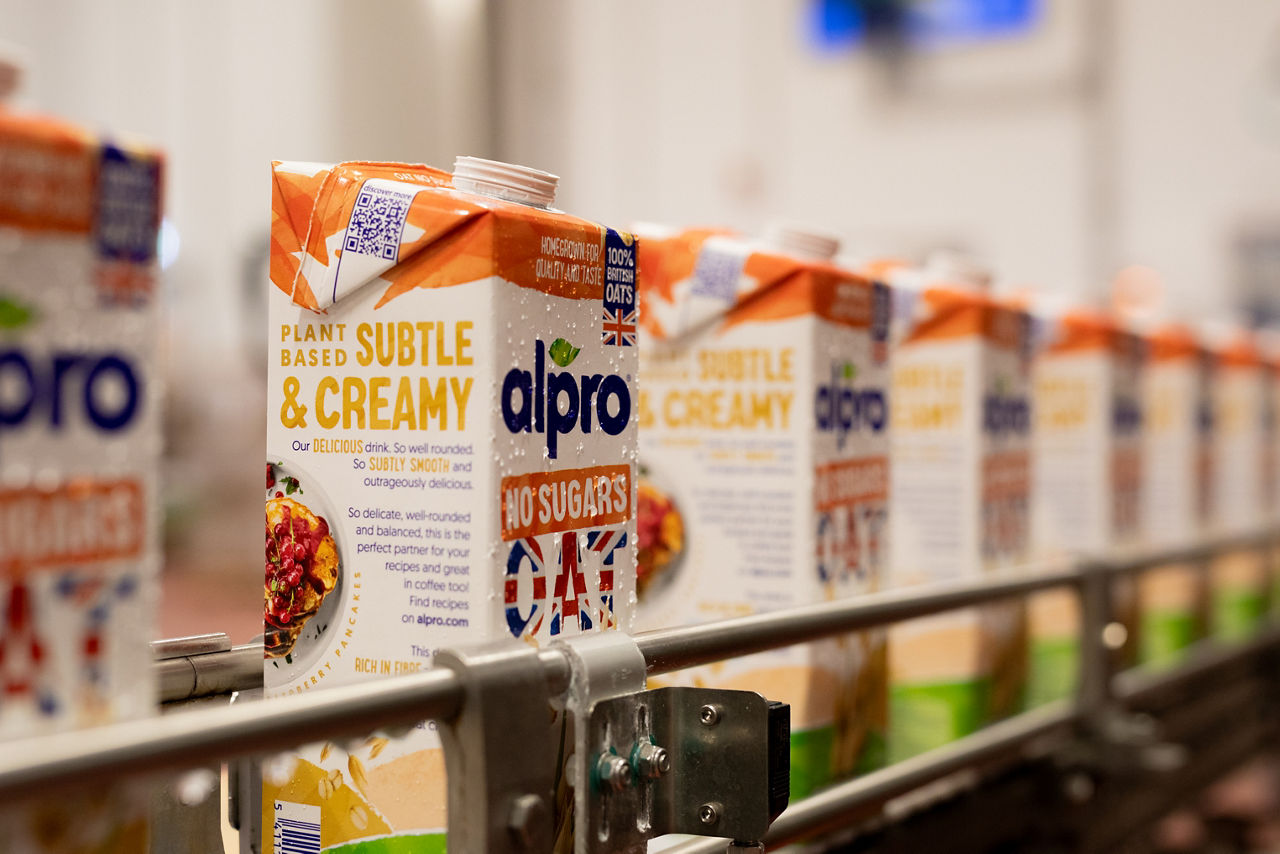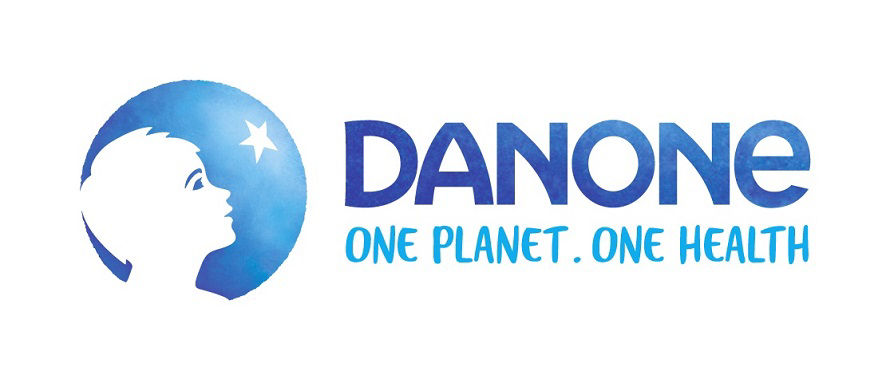
Our recent move to make our most popular Alpro oat drink* from 100% British Oats is a great example of how investing locally can make meaningful progress, both economically and environmentally. Because in a constantly changing world, we recognise the critical role food plays at the forefront of many environmental threats and solutions, such as climate change and biodiversity. Hannah Cornick, Head of Sustainability and Social Impact at Danone UK & Ireland, explains why this recent investment has been a crucial step in our ambition to curb our greenhouse gas emissions (GHG).
Alpro has long been committed to sustainability. Our Alpro products have lighter footprints for both carbon and land use when compared to dairy equivalents** and we are on a continuous journey to strengthen sustainable sourcing. So it was an exciting moment when Danone made the decision to invest in Alpro’s Kettering factory in England to make way for local oats sourcing.
Our factory in Kettering has been producing plant-based drinks for shoppers for more than 25 years and the site has always been committed to reducing its environmental impact. So our recent investment in the site has been key in our drive to support local farming and bolster our plant-based offering.
To make the switch to British Oats, we needed a few things in place: new equipment, a new production process and a source for our 100% British Oats. That’s where the Navara Oat Mill comes in. They’re a modern, purpose-built oat mill who happen to be based just up the road from our Alpro factory in Kettering. Due to their experience and close ties with local farmers, we’ve been able to commit to source our oats from farmers mostly within an 80 miles radius of the mill. By switching from sourcing oats in mainland Europe to local suppliers, we’ve substantially cut land miles – and with them, carbon emissions. When we say ‘locally sourced’, we truly mean it.”
Navara supplies our oat flour, which we then fortify with key vitamins and minerals as part of our updated recipe. Due to our investment in the factory, the new equipment and process now uses less energy and less water, further reducing our emissions.
We wanted to quantify the impact of moving to local sourcing and turn our progress into meaningful numbers. So we conducted a comparative lifecycle analysis with Food Steps and found that our move to local sourcing, coupled with a new production process, has delivered, on average, an estimated:
25% lower carbon footprint
20% reduction in land use
70% reduction in water use across the product lifecycle vs Alpro’s previous Oat Original & No Sugars 1 litre drink recipes in the UK
This move equates to an estimated 6,000 tonne reduction in Alpro’s carbon footprint in 2025!
Reducing our impact on nature is a key part of our Danone Impact Journey, so it’s really encouraging to see the real-world benefits of this investment, allowing us to deliver a healthy, tasty product to our customers in a more sustainable way. Not only that, but it’s also great for British farmers. We’re investing in local businesses and giving farmers new avenues for their crops beyond traditional pathways, like cereals. This in turn helps build resilience across the supply chain – especially since we’re looking to produce some 58 million litres of our British Oat Drink every year at our factory in Kettering!
It’s certainly been an exciting investment and a great example of the real-world impact of local sourcing. Moving forward we’re always looking at ways we can innovate and reduce our impact so we can deliver more for people and the planet.
*Alpro 1 Litre Oats and No Sugars formats.
**Several ingredients have different impacts on carbon and land use. Impact on carbon:19-26% compared to milk. Impact on land use: between 28-54% compared to milk. This is based on a peer-reviewed comparative life cycle assessment conducted by Quantis in 2022 of Alpro Original drinks (1 l) compared to milk in Europe
